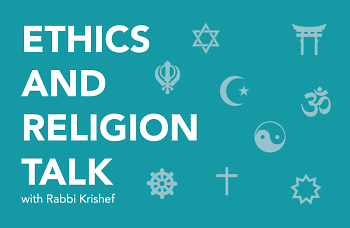Father Michael Nasser, who writes from an Eastern Christian perspective and is Pastor of St. Nicholas Orthodox Christian Church, responds:
“If the ‘pro-gun’ sign was placed to show support for policies which encourage the baseless killing of humans, that would absolutely be a contradiction! I'm not a gun owner myself, but the people I know that do own guns use them for either self defense or the hunting of food, neither of which are seen as immoral in Orthodox Christianity. The senseless killing of either unborn children or humans of any age is seen as extremely immoral and an affront to God, the Giver of Life.”
The Reverend Colleen Squires, minister at All Souls Community Church of West Michigan, a Unitarian Universalist Congregation, responds:
“For me if someone wants to claim to be pro-life, they must embrace a wide variety of issues beyond reproduction and abortion. To be pro-life you must also be against the death penalty, you must support a living wage for all people, advocate for universal healthcare for all, proclaim that Black Lives Matter, and wear a mask – to name a few pro-life issues. Each one of these stances values and supports all human life, which is what pro-life should mean. This is a true Pro-life stance. If you understand pro-life solely as it relates to abortion than I think the correct term for that is pro-birth, which is quite different than being pro-life.
“If the neighbor’s pro-gun stance includes his right to fire the weapon at another human being for whatever the reason, then the neighbor is also not truly pro-life. To threaten to take or to take a human life is not a pro-life stance. I think the signs are in contradiction. The neighbor can certainly have one or the other but probably not both.”
Fred Stella, the Pracharak (Outreach Minister) for the West Michigan Hindu Temple, responds:
“Let’s start by understanding what those signs mean. Most people who self-identify as ‘pro-life’ would agree that their mission is to criminalize abortion. This is different from people who might view it as a sin, but feel it best to keep the legal system out of the equation.
“As far as being ‘pro-gun,’ that could mean a few things, but often it boils down to a simple idea: The government should have absolutely no say in what weapons I choose to own. The vast majority of Americans (including myself) do support the constitutional right to bear arms. But since no legal protection is absolute, I wholeheartedly support the responsibility of lawmakers to protect us from people who now have the ability to wage small scale wars in their community. But I would assume your neighbor would oppose such oversight.
“But a contradiction? Not in the least. I suspect that he is making this following statement: “I believe that a zygote/embryo/fetus, from the moment of conception is an innocent human person, and deserves protection from the state until and after birth. I also believe that if someone is attempting to harm me or my family, I have the God-given right to use whatever weapon I choose to subdue, or if necessary, kill him.” To your neighbor, the key here is innocence.”
Linda Knieriemen, Senior Pastor at First Presbyterian Church in Holland, responds:
“They can be, yes. But not every gun owner intends to shoot a human being. I rather enjoy a gift of venison from a pro-gun parishioner!
“There is a lack of theological consistency in these two signs which may or many not be recognized by the neighbor. On the one hand, she says ‘life matters.’ That’s a theological perspective. On the other hand, she is saying, owning a gun, which by definition is used to kill, is my constitutional right.
“My Biblical and Reformed Christian perspective tells me that human life is to be held as a high value: a value of the first order. God created humans ‘in the image of God’ and has given human beings a particular status and dignity.
“Therefore, if I am pro-life, I would object to killing as well as inflicting an injury which could lead to death. I would also act to preserve, protect, sustain and nourish life, not only refrain from harming.
“But there is also an acceptance in my Reformed tradition that sometimes these two obligations may come into conflict. Therefore, there are circumstances wherein taking a human life may be justifiable, particularly in the situation of self-defense and war. In other words, in such ethical matters like this, we have to allow for nuance. To know if my neighbor’s signs are conflicting will require openness to dialogue. Unfortunately in today’s political and theological climate we hasten to take up sides so as to defend our positions, rather than digging deeply to learn from one another.”
This column answers questions of Ethics and Religion by submitting them to a multi-faith panel of spiritual leaders in the Grand Rapids area. We’d love to hear about the ordinary ethical questions that come up in the course of your day as well as any questions of religion that you’ve wondered about. Tell us how you resolved an ethical dilemma and see how members of the Ethics and Religion Talk panel would have handled the same situation. Please send your questions to
[email protected].
The Rapidian, a program of the 501(c)3 nonprofit Community Media Center, relies on the community’s support to help cover the cost of training reporters and publishing content.
We need your help.
If each of our readers and content creators who values this community platform help support its creation and maintenance, The Rapidian can continue to educate and facilitate a conversation around issues for years to come.
Please support The Rapidian and make a contribution today.
